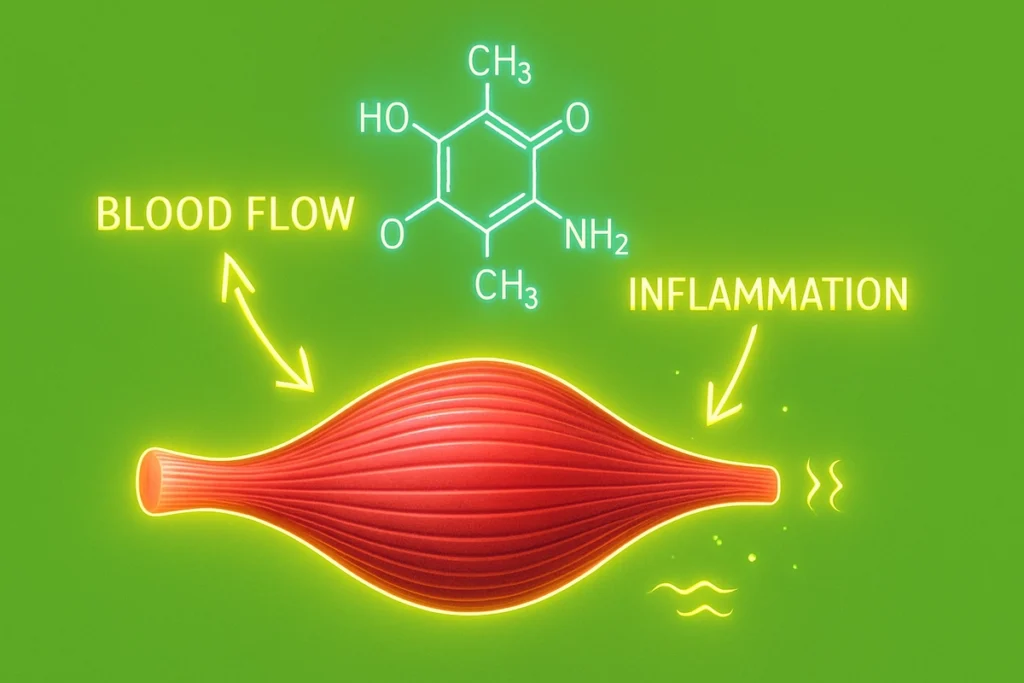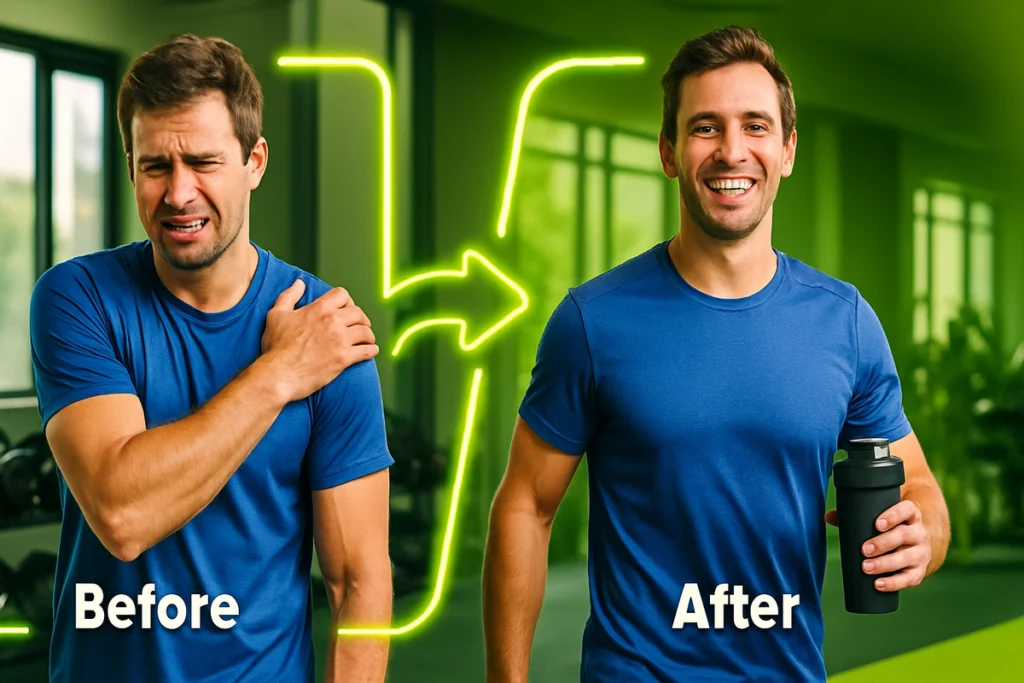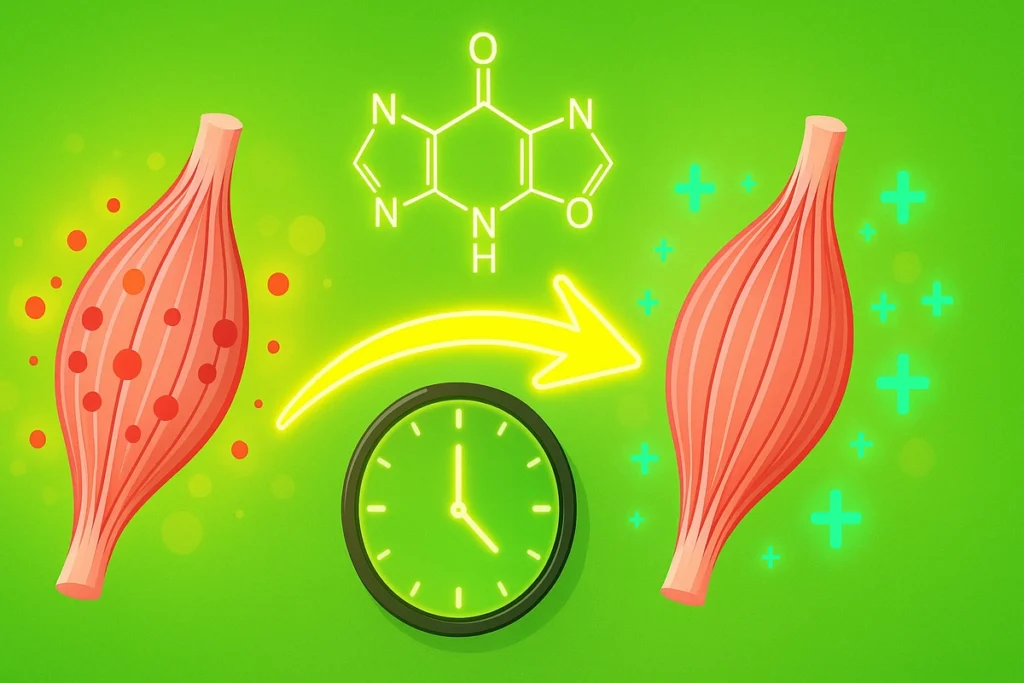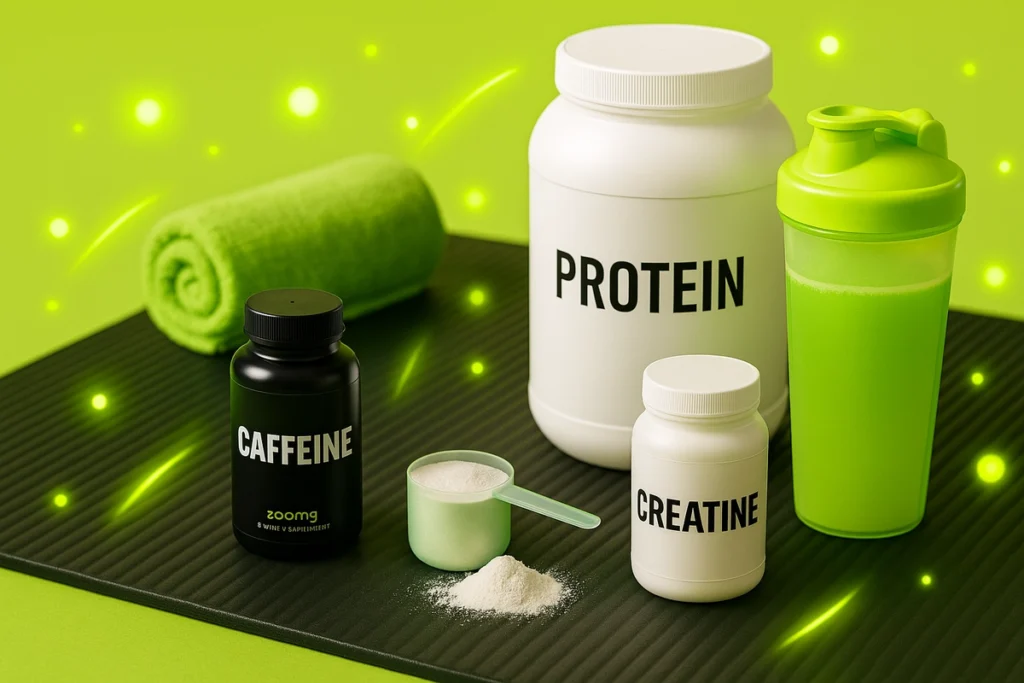Feeling sore after training and wondering if your morning coffee can do more than just wake you up?
Caffeine isn’t just a pre-workout buzz — it might also be your secret weapon for reducing muscle soreness, speeding up recovery, and staying consistent with your training.
Backed by science and real-world results, caffeine’s role in muscle recovery is gaining serious attention among athletes, coaches, and fitness lovers.
But does it really work? And when should you take it to actually get results?
Let’s break it down with practical science, firsthand experience, and real coaching insights that deliver real value.
Table of contents
- Quick Answer: Can Caffeine Help Recovery?
- How Caffeine Affects Muscle Recovery (The Science)
- Real-Life Results: What I’ve Seen as a Coach
- When to Take Caffeine for Best Recovery Impact
- Who Should Be Careful with Caffeine?
- Stacking Caffeine with Other Recovery Tools
- Final Verdict: Is Caffeine a Good Recovery Hack?
Quick Answer: Can Caffeine Help Recovery?

Yes — caffeine can help with muscle recovery and reduce soreness, especially after intense training sessions.
It won’t magically heal your DOMS overnight, but it can make the pain more manageable. From what I’ve seen — both in myself and my clients — caffeine may help reduce post-workout fatigue, improve circulation, and ease that “next-day stiffness” we all know too well.
But here’s the truth: it works best as a complementary tool, not a shortcut. Real recovery still depends on sleep, nutrition, and smart programming.
If you’re using caffeine regularly, be sure to check out how to reset your caffeine tolerance to keep it effective long-term.
How Caffeine Affects Muscle Recovery (The Science)

Caffeine does more than just wake you up.
Studies show it has anti-inflammatory properties, and it can reduce the perception of pain, which is a game-changer during the recovery phase.
It also enhances blood flow, which helps deliver nutrients and oxygen to damaged muscle tissue. That’s exactly what you want after a brutal hypertrophy or volume-focused workout.
As a coach, I’ve found caffeine particularly helpful for reducing DOMS (delayed onset muscle soreness) in high-rep training programs.
One of my clients, Lucia from Spain, was doing heavy eccentric work during a fat-loss phase. After we added caffeine to her post-workout routine, her soreness was cut in half — and her mood improved, too.
You can also compare caffeine vs. pre-workouts if you’re considering which option is better for your needs.
Real-Life Results: What I’ve Seen as a Coach

I’ve personally used caffeine during recovery windows — especially after killer leg days.
When I added black coffee or a 200 mg caffeine pill post-workout (instead of before), I noticed less heaviness in my legs the next day.
One client, Daniel from the UK, was doing a push-pull-legs routine with high-volume back days. After introducing post-workout caffeine (paired with a whey shake), he felt a big drop in stiffness — and recovered faster mentally.
That’s the thing: caffeine’s benefit isn’t just physical. It helps with mental clarity, which keeps your training momentum strong.
When to Take Caffeine for Best Recovery Impact

Timing makes a big difference.
Most people use caffeine pre-workout, but using it after training can fight off fatigue, improve alertness, and reduce soreness perception.
It’s a solid option if you train in the morning or early afternoon and still have a busy day ahead.
From experience, I’ve found black coffee or caffeine tablets work best. They’re clean, predictable, and free from sugar crashes.
One of my athletes, Mike from Canada, moved from energy drinks to caffeine pills post-workout. He felt steadier energy and less jitteriness.
Not sure when to time it for best results? Here’s my full guide on the best time to take caffeine for performance.
Who Should Be Careful with Caffeine?

Caffeine isn’t for everyone — and it can backfire if used the wrong way.
If you train late at night, caffeine can wreck your sleep, which is the foundation of good recovery.
One of my clients, Sara from the U.S., took a strong coffee after a night workout. Her sleep was so bad we had to remove all post-workout stimulants.
If you’re already drinking 3+ cups of coffee daily, or if you deal with anxiety, caffeine might increase stress hormones and interfere with rest and digestion.
In these cases, stick to natural recovery tools — and read up on managing caffeine dosage for fat burning and focus before deciding how much is right for you.
Stacking Caffeine with Other Recovery Tools

Used smartly, caffeine pairs well with other recovery aids.
I’ve seen great results stacking caffeine + 5g creatine + 30g whey post-workout. It gave me more energy, reduced soreness, and helped with consistency.
Omar from the UAE was deep into a cut and dragging post-workout. We added a 150 mg caffeine pill to his protein shake with creatine. His DOMS dropped, and he had better energy for his next session.
You can also combine caffeine with hydration, EAAs, and electrolytes for a more complete post-training recovery plan.
Final Verdict: Is Caffeine a Good Recovery Hack?

If you want to stay sharp, reduce muscle soreness, and feel more energized between sessions — caffeine can help.
It’s not a magic fix, but used correctly, it can become part of a smart recovery strategy.
Just don’t rely on it every day. Cycle your caffeine, prioritize quality sleep, and focus on consistent habits.
For beginners, master the basics first — then consider adding caffeine post-workout in moderate doses (100–200 mg).
For advanced lifters, it’s a reliable recovery ally — both physically and mentally.
Coach’s Tip:
Test it on yourself. Try post-workout caffeine for a week and see how your body reacts. If it boosts energy without messing up your sleep, it might be the recovery edge you’ve been missing.



Leave a Reply